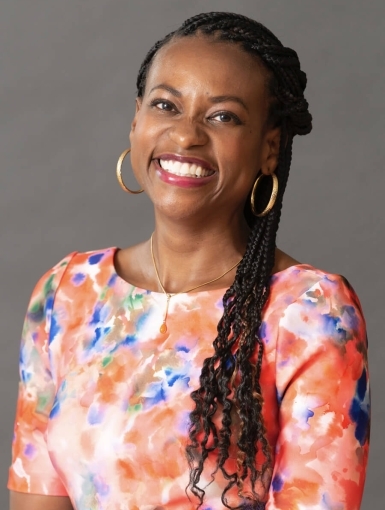
A New Report Highlights the Struggles and Triumphs of Black Led and Benefiting Organizations
Ebonie Johnson Cooper, associate clinical professor and founder of the Young, Black & Giving Back Institute, recently shared insights from her organization’s report, "Grassroots, Black & Giving: How Philanthropy Can Better Support Black-led and Black-Benefiting Nonprofits." The report was funded by the Nielsen Foundation through its “Data for Good” program and sheds light on the challenges faced by Black-led and Black-benefitting nonprofits.
A passionate advocate for social change, Johnson Cooper stressed the importance of research, attention to detail and the vital role of nonprofits in addressing societal gaps that government policies often miss. The research report focuses on organizations primarily serving Black communities, sharing their concerns and needs while highlighting their remarkable resilience and dedication.
Delving into the financial challenges facing many nonprofits, Johnson Cooper notes that some nonprofits operate on annual budgets as low as $30,000, and shared that, until recently her own organization had operated with an exceedingly small budget of less than $25,000. She proposed policy measures, such as earmarked funds for smaller nonprofits and increased awareness of state and local grants. She emphasizes, "Helping to mitigate the challenge of losing one to two key funders is ensuring that grant and funding opportunities are more than just a year."
It’s important to note that organizations not directly involved in social services may inadvertently overlook the untapped advantages offered by state and local government funding opportunities simply because they are unaware that these resources are available to them.
Acknowledging the crucial role played by volunteers in nonprofit work, Johnson Cooper emphasizes the importance of supportive policies. This support might encompass providing grants for volunteers, recognizing their invaluable contributions and addressing their needs beyond just their time and effort.
Furthermore, Johnson Cooper highlights the significance of founder-led organizations, frequently managed on a voluntary basis. She suggests that these organizations should explore grant programs, receive fundraising education and engage in capacity-building initiatives to enhance their sustainability, observing that these founders often sacrifice their careers for their missions, and their dedication should be both acknowledged and celebrated.
Because nonprofits often fill in the gap that government and policy miss, many of these organizations are operating because of policies that aren't working in the favor of their communities.Ebonie Johnson Cooper
Black-led nonprofits primarily focus on critical community needs, and Johnson Cooper urges the alignment of funding priorities with these needs. She said, "Because nonprofits often fill in the gap that government and policy miss, many of these organizations are operating because of policies that aren't working in the favor of their communities." Johnson Cooper acknowledged the vulnerability of nonprofits to the loss of key funders and recommended multi-year funding opportunities and financial and fundraising education. She adds, "The findings in this report can bring attention to how much work is really being done because of a lack of policy or implemented policy changes."
The report emphasizes the importance of tailored support for Black women in leadership roles within the nonprofit sector. Johnson Cooper said, "Culturally, Black women have held together our community, whether we’re feeding the children or taking care of the community. We have always been nurturers and caretakers, so it's no surprise that we see the problem. Women are problem-solvers by nature. We've always had to be [problem solvers] from a policy arena."
Referencing social movements throughout history such as the civil rights movement and the women’s suffrage movement, Johnson Cooper reflects that those movements have often been led by women, either prominently or behind the scenes. Even if movements like the suffrage movement did not prioritize the rights of Black women, Black women leveraged the movement and played a crucial role in advancing their communities’ interests.
A sector-wide question that should be asked, asserts Johnson Cooper, is: “How are these Black women really doing all of this?” It is crucial to recognize that these women may be achieving their goals, but it doesn't necessarily mean they are leading healthy, happy or fulfilled lives. The next step, says Johnson Cooper, should be to explore “what support can be given, so that when we’re doing good, we’re also doing well.”
Johnson Cooper views this research report as a celebration of the often-overlooked contributions of Black-led nonprofits and the individuals who drive change within their communities. She notes, "We [YBGB Institute] turn 10 next year. … It's really a celebration of everything in the story of our work." It is also a compelling call to action, inviting policymakers, funders and supporters to stand behind Black-led nonprofits and the remarkable contributions of Black women. Taking actionable steps and making policy changes now will reduce the burden on these organizations and ensure their long-term viability.




